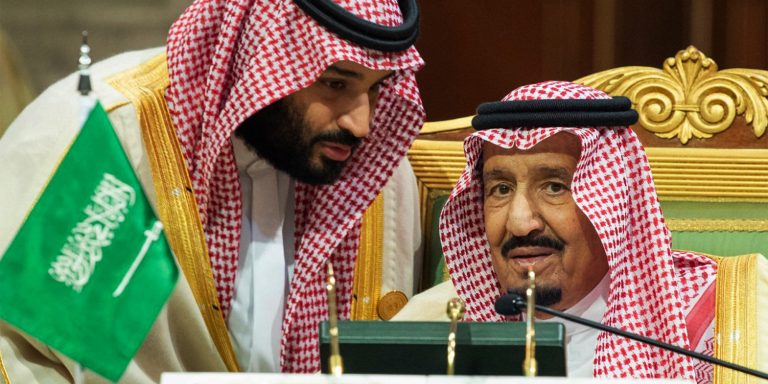INTELBRIEF
April 10, 2020
IntelBrief: Saudi Arabia Declares Yemen Cease-Fire Amidst Growing Domestic Issues

- Saudi Arabia announced a unilateral cease-fire in Yemen amidst growing concerns over the spreading coronavirus pandemic.
- Saudi Arabia’s scorched earth campaign has devastated Yemen’s health infrastructure over the past several years, making Yemen particularly susceptible to a nation-wide coronavirus outbreak among its population.
- Yemen is among the poorest countries in the world and it has been wracked by years of conflict, crippling poverty, and disease, including a cholera outbreak that accounted for thousands of deaths.
- Some doubt Riyadh’s sincerity and see the cease-fire as an opportunity for the Kingdom to focus on domestic challenges such as the spread of coronavirus among the royal family and fallout from the oil price war.
.
Saudi Arabia announced a unilateral cease-fire in Yemen this week amidst growing concerns over the spreading coronavirus pandemic. Saudi Arabia and its allies, including the United Arab Emirates, have agreed to a two-week cease-fire that also includes the internationally-recognized government of Yemen as part of the truce. The cease-fire, which went into effect on Thursday, is supposed to extend to a cessation in air, ground, and naval hostilities. Although members of a Saudi delegation claim that the Houthi rebels, the Saudi coalition’s primary rival in the Yemen conflict, were not consulted, the cease-fire could be an attempt to entice the Houthis to the negotiating table in an effort to put an end to the war. The Houthis would be unlikely to accept any agreement that fails to put an end to the ongoing economic embargo. In response to the global spread of the coronavirus, United Nations (UN) Secretary General Antonio Guterres also called for a worldwide cease-fire on humanitarian grounds.
Saudi Arabia’s scorched earth campaign has devastated Yemen’s health infrastructure over the past several years. Hospitals have been deliberately targeted and civilians killed in some of the most horrific acts of violence in recent memory. To date, the conflict has killed more than 100,000 Yemenis and led to widespread famine. Although no COVID-19 case had been reported in Yemen as of early April, the war has crippled Yemen’s ability to respond to any complex challenge or crisis, including the disastrous implications of a pandemic. Yemen is among the poorest countries in the world and it has been wracked by years of conflict, crippling poverty, and disease, including a cholera outbreak that accounted for thousands of deaths. Early 2020, nearly 40,000 people were displaced in Marib and Al Jawf provinces, forcing them into overcrowded camps where the living conditions are deplorable. If humanitarian organizations are unable to provide basic provisions displacement sites will become breeding grounds for the virus to spread and contaminate populations beyond the displaced communities.
If the peace process does move forward, the Houthis could use it as an opportunity to demonstrate that they can be willing and capable actors in a future power sharing agreement, strengthening their claims to political legitimacy in Yemen. Yet understandably, the Houthis have been non-committal to a deal. Militarily, the Houthis are on the offensive and Saudi Arabia is unable to gain any momentum on the ground. The Aramco attack last September demonstrated the new rules of engagement in the war, and over the first several months of 2020, the Houthis have secured territory in the oil-rich areas of Marib province. Recent territorial advancements give the Houthis even less incentive to agree to a temporary cease-fire, considering these crucial gains.
The ultimate goal of the cease-fire in Yemen is to provide momentum for UN-brokered peace talks to bring about an end to the nearly five-year old conflict. UN Special Envoy to Yemen, Martin Griffiths, has been pushing for an end to the conflict and pressuring the Saudis to engage politically. Still, some seriously doubt Riyadh’s sincerity and see this current move instead as an opportunity for the Saudi government to focus on internal issues and domestic challenges. Saudi Arabia is currently dealing with the spread of the coronavirus throughout the country and recent reports indicate that several dozen members of the Saudi royal family have tested positive for COVID-19. The outbreak is likely to get much worse in the Kingdom. Moreover, the ongoing oil price war with Russia has had a negative impact on Saudi Arabia’s economy. Attempting to manage a losing war effort could prove too much for the Saudis to handle, in addition to other cascading issues, making this an opportune time for Riyadh to cut its losses and forge ahead with a peace deal, even if it happens on less than favorable terms for the Saudi government.
.
For tailored research and analysis, please contact: info@thesoufancenter.org